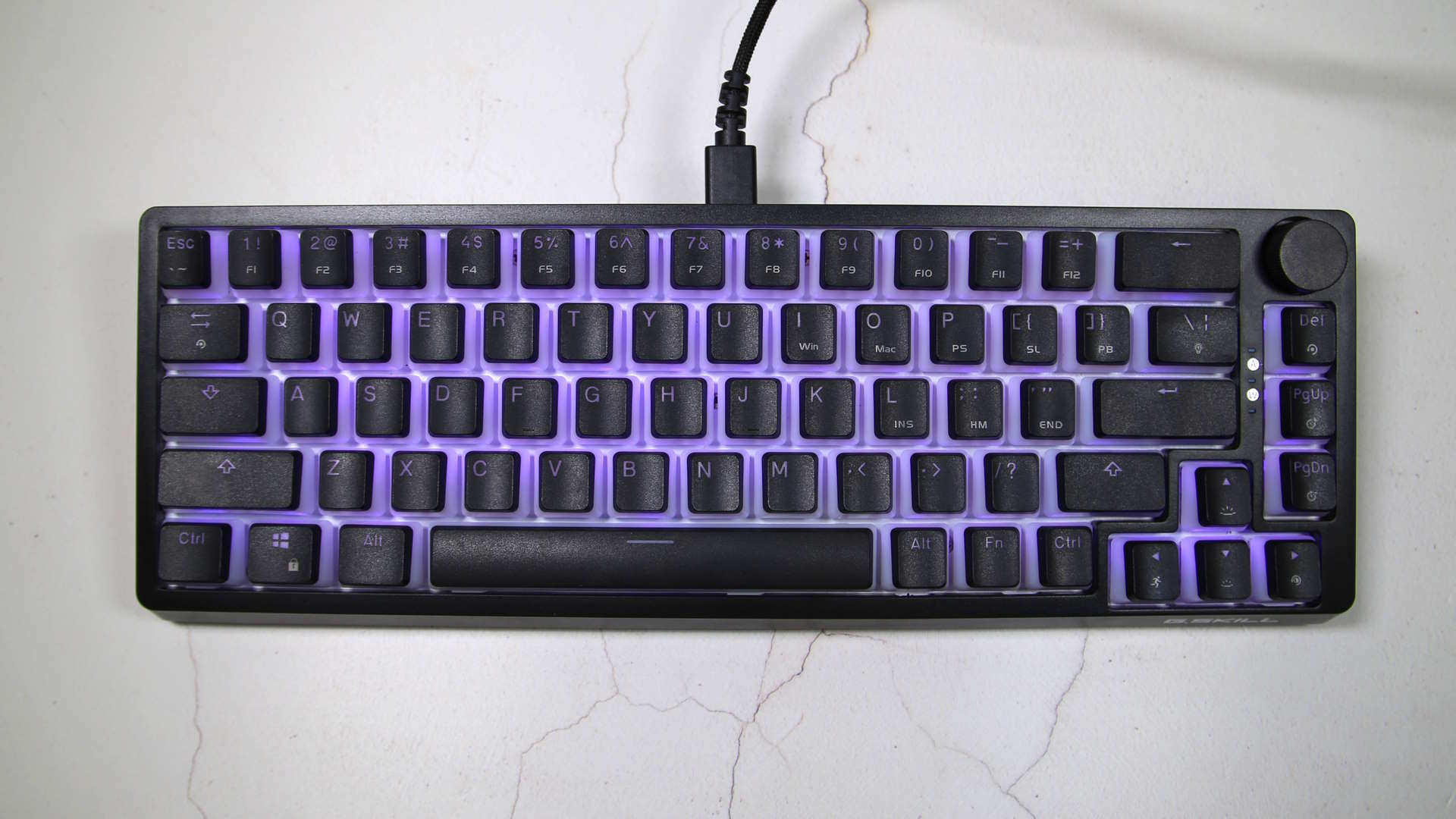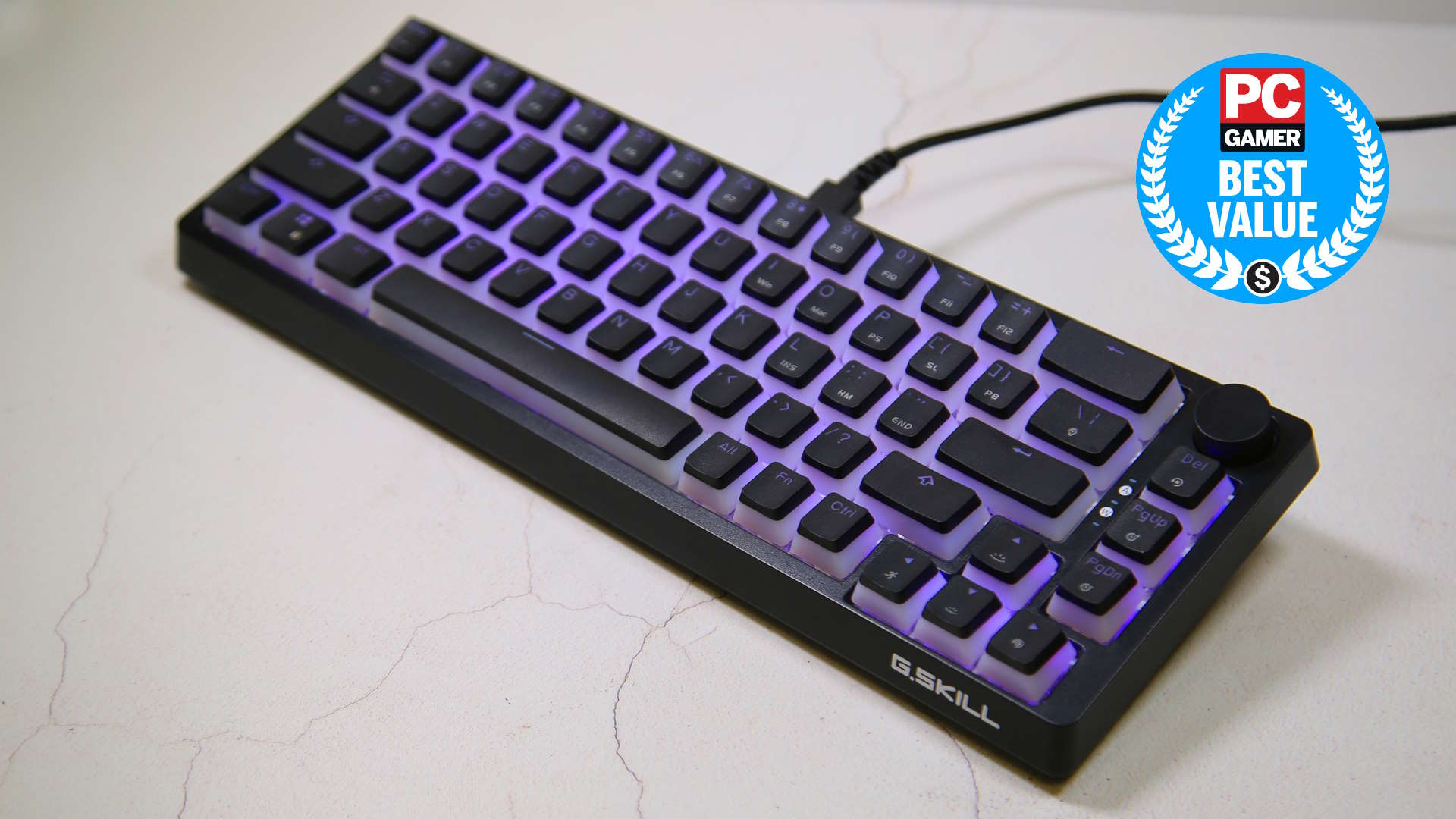
Mechanical gaming keyboards can cost a fortune. Look at the best gaming keyboards and you'll be paying anywhere between $200 and $300. If you're after a compact keeb, with hot swappable switches, per-key RGB lighting, and discrete media keys, then you're going to be paying the big bucks for an enthusiast board, aren't you?
Well, no, thanks to the G.Skill KM250. Yes, G.Skill. The high-end system memory people.
It's not as incongruous as that might initially seem as the company has already made our favourite budget mechanical keyboard—the KM360. That's a tenkeyless board that ships with genuine Cherry MX Red switches, not some Cherry analogue. And it comes in at around $50.
It's not a hot-swappable base and only sports white LED backlighting, but it's a genuine mechanical keyboard that just works. It's not fancy, but it's affordable and functional. And that's honestly all you need a good gaming keyboard to be.
But in these days of enthusiast keebs, that might be all you need but it's not all you want. Which is why the G.Skill KM250 has my attention, because it is bringing a host of those enthusiast keyboard features without the exorbitant price tag. Right now you can pick up this compact 65% keyboard for just $40.
If you're after a good compact board you honestly don't need more. And if you're looking to get into the enthusiast switch game it's a super cheap base to jam some quality switches into because it's entirely hot swappable.
I will say up front that it is obviously lacking the high-end luxury of sound dampening and super-fancy stabilisers, but those are compromises I'm willing to make for such a supremely cheap keyboard. And honestly, I've experienced far worse stabilisers on expensive NZXT and Razer keyboards in the past.
Unlike the KM360, however, the KM250 isn't shipping with genuine Cherry MX switches, instead it's using Kailh's version of those linear red switches. They're not bad, but definitely not great and, combined with the plastic, undampened chassis you do end up with quite a hollow-sounding typing experience.
But, having changed out the linear Kailh Red switches for a set of Halo True heavy tactile switches, the difference in the sound is clear. It's not the ultra rich-sounding experience of using the Mountain Everest 60 or Asus ROG Azoth, but it now feels great to type on, dampening or no. It's also at most half the price if you include fancy new switches, and if you've got a headset on you'd be hard pressed to feel the difference.
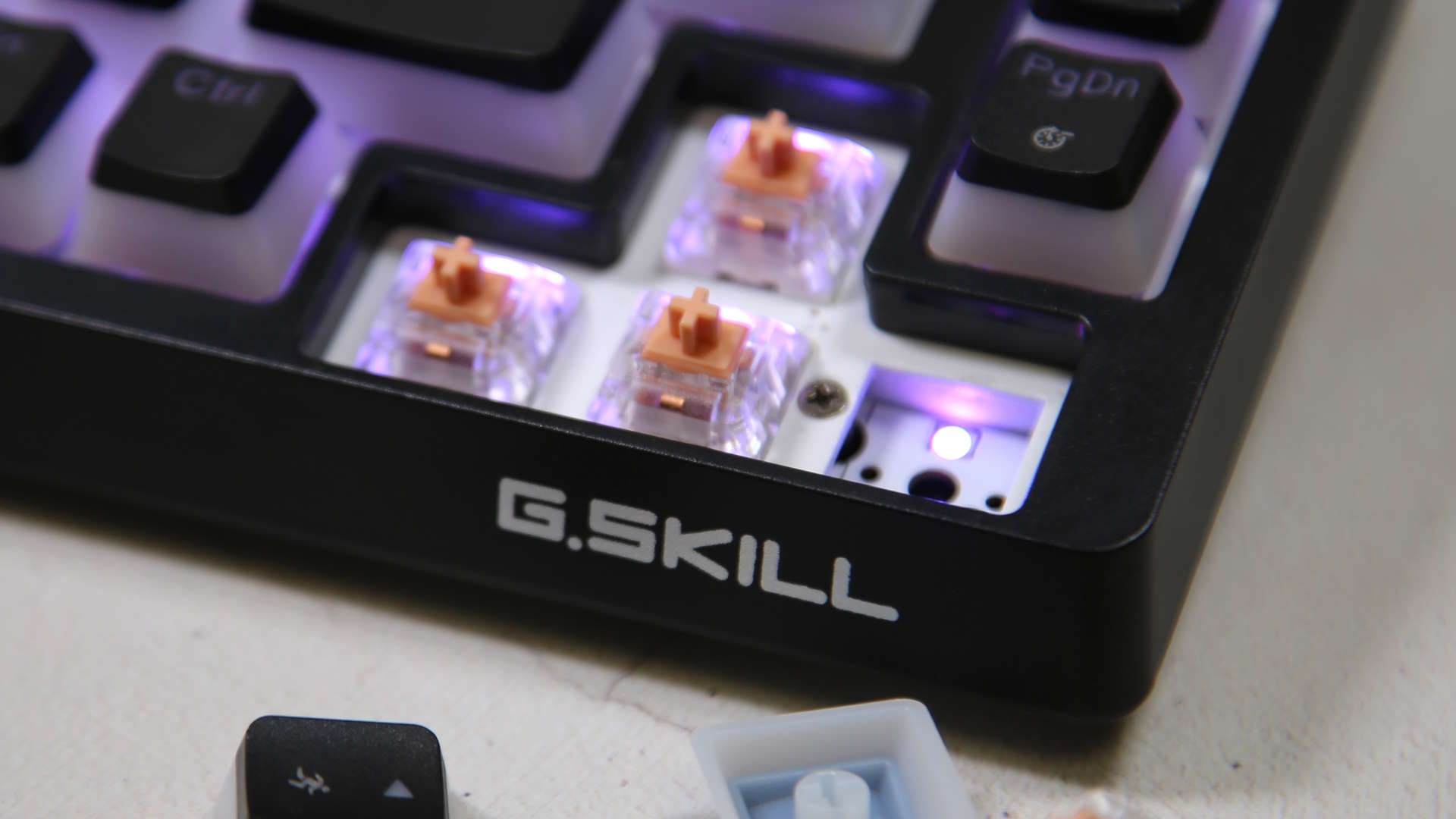
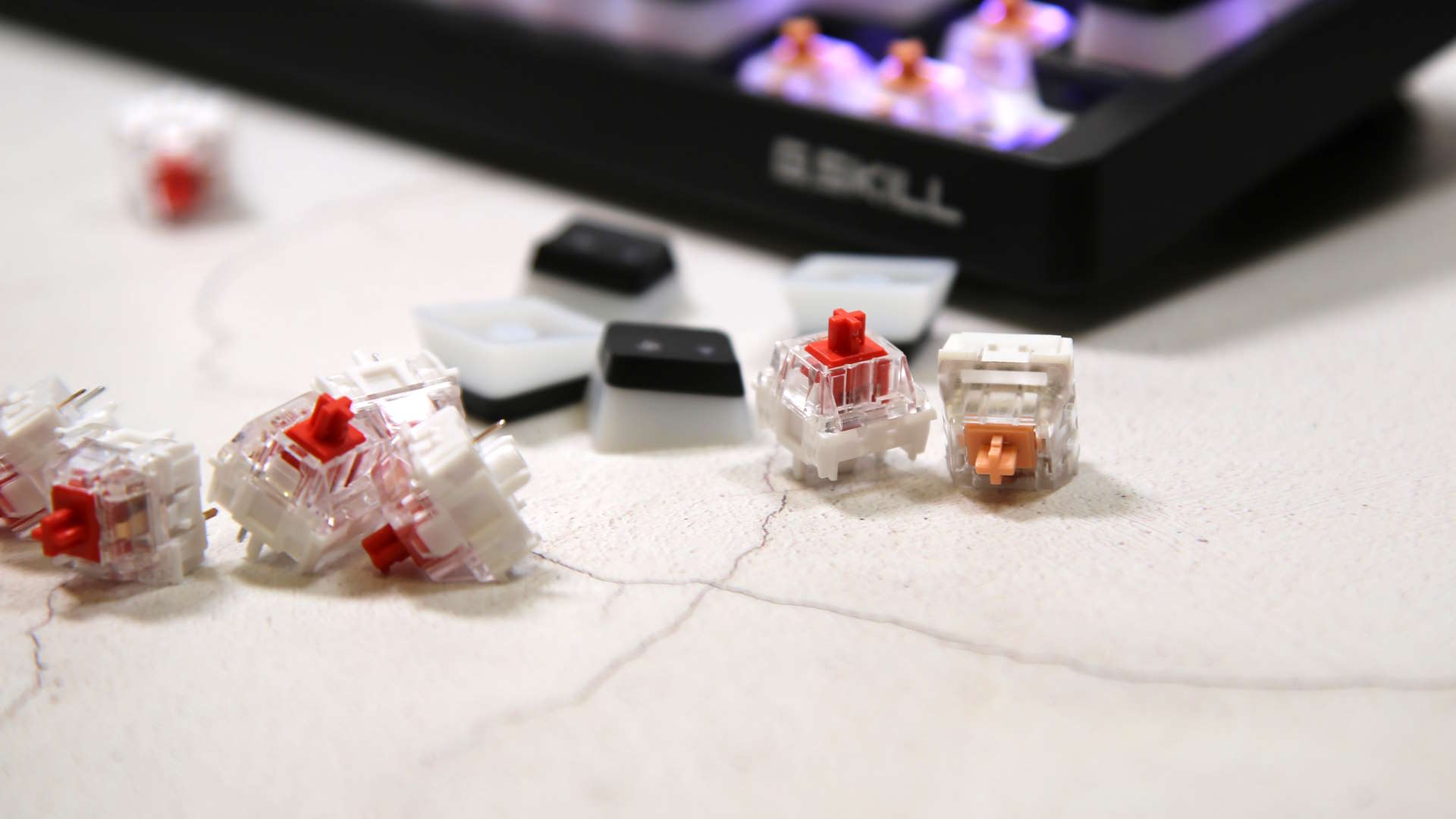
You can of course buy barebone keyboard bases on their own for not stupid money should you want to go down that route. But even if you're paying $80 for a hot-swappable base you've still got to buy some keycaps as well as your pick of switches. But if I were to buy the KM250 and a set of Halo True switches from Drop for $35 (a single 70 switch pack will cover the 67 keys of the G.Skill board), that's still just $75 for a full, finished compact gaming keyboard that now feels lovely to type on.
And I'm actually quite taken with G.Skill's own pudding keycaps, which are genuine PBT double-shot caps, too. So I don't feel the need to swap them out for some more fancy switch toppers.
The board layout itself is pretty standard 65% fare, by which I mean it's my actual favourite gaming keyboard layout. I prefer a compact board—it gives me more space on my desktop, and more space for my gaming mouse, too—but a purestrain 60% means too few keys, and I really need to at least have cursor keys. G.Skill has ensured there's a little bit of spacing between the bulk of the keys and the cursors, and you also get separate Del, PgUp, and PgDn buttons, too.
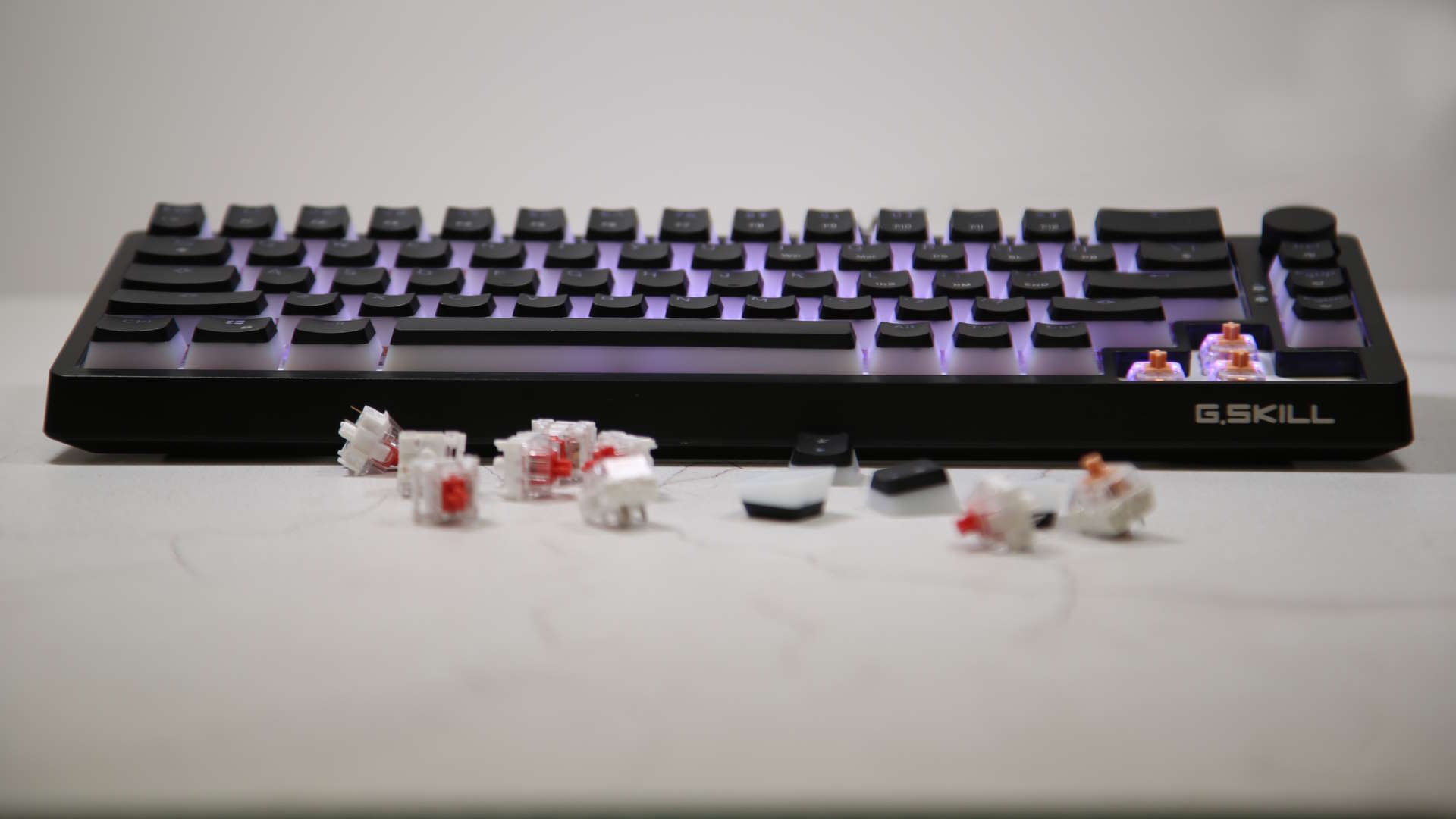
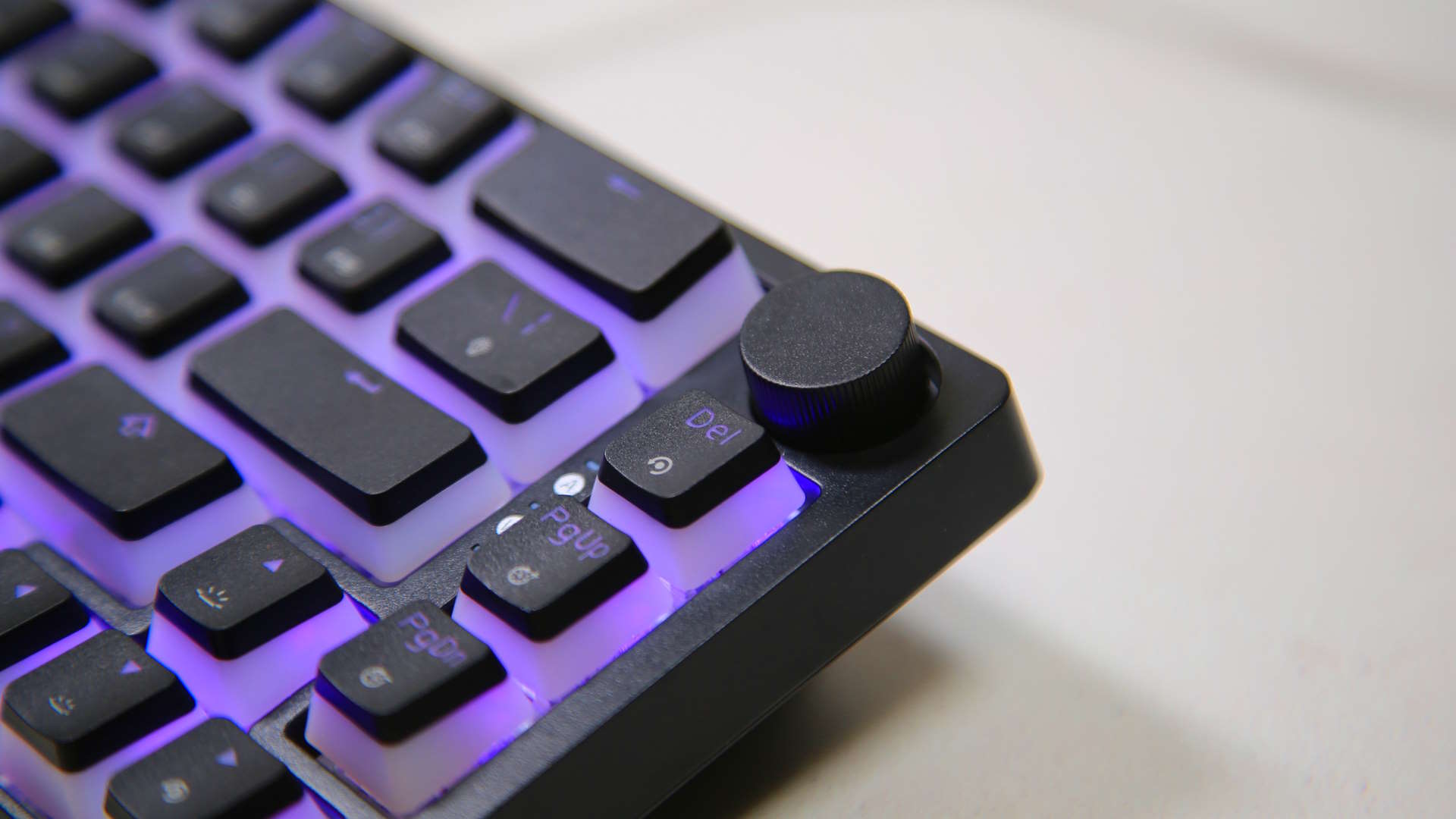
I love a physical, tactile volume control.
And a discrete volume wheel. I love a physical, tactile volume control, and it's a genuinely lovely little extra I wouldn't have expected on such an affordable board. It's not just volume up and down, as there's a click down to it which will mute or unmute your machine as well.
There's also, thankfully, no software to deal with either. That might mean you can't quite get the exact Hex code for the exact hot pink to match with the rest of your setup, but by controlling all the various lighting effects and gaming modes from the board itself it makes things more straightforward.
My only real issue with the KM250 stems from the plastic chassis. It's light, but surprisingly solid and there's no give to the board at all. But unfortunately the finish on the casing means there's a little sharp edging at the seam where the top and bottom sections of the chassis come together. It's a minor thing, but it doesn't feel great.
But this thing is just $40 for a fully functional compact mechanical gaming keyboard, and one that gives you the option to spend a bit more and buy in some outstanding new switches to seriously upgrade the experience at your leisure.
It feels great to be able to genuinely recommend a bit of budget PC gaming hardware in this current climate, especially when it's been so well put together. I'm honestly genuinely impressed with the package as a whole, and if you want a proper mechanical keyboard experience without paying enthusiast money, the G.Skill KM250 is an outstanding option.
